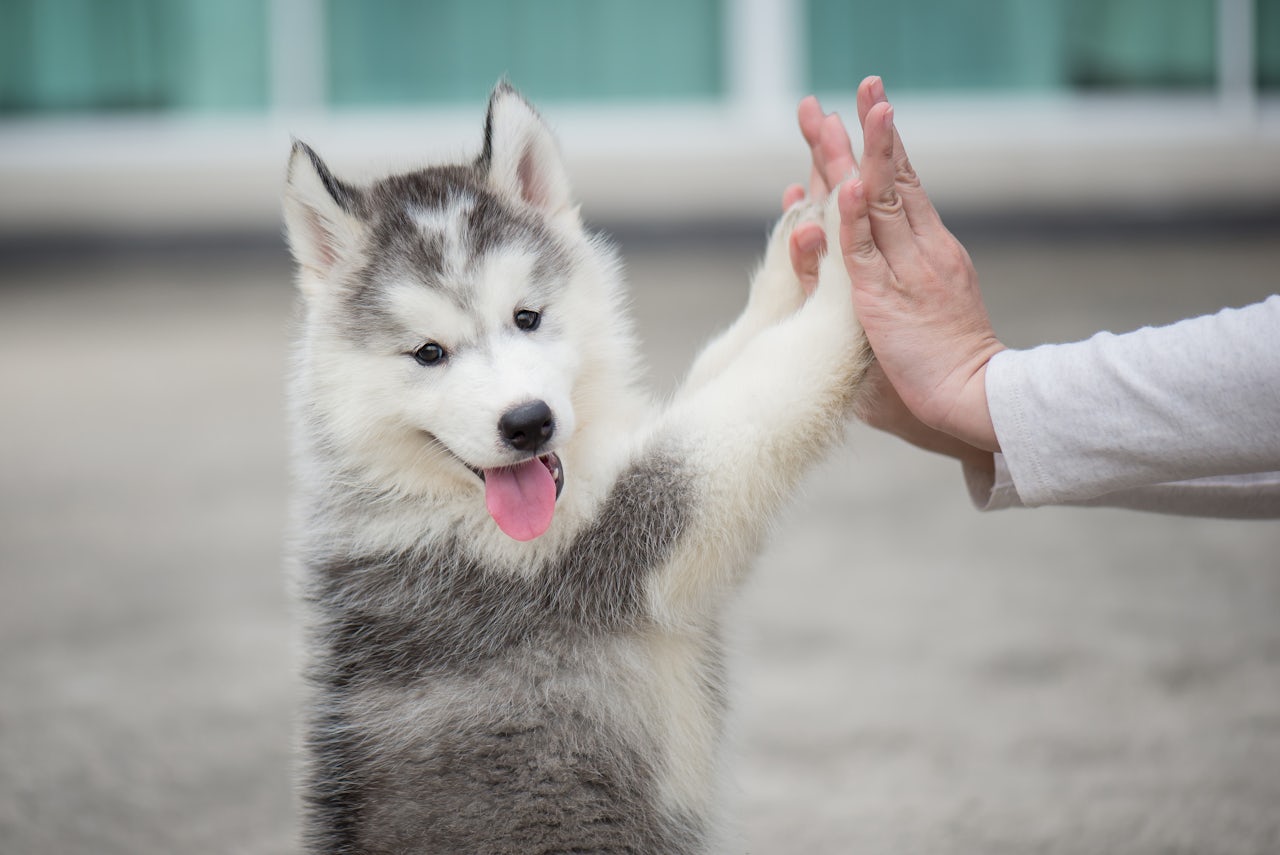People really do say “doggo” and “pupper” to refer to animals once known, simply, as dogs and puppies. You are not insane; you have not spent too much time online. The boom in usage of this terminology is attributed to the viral Twitter account WeRateDogs which is followed by nearly seven million accounts and, as its name indicates, posts pictures of dogs along with a rating and a cutesy caption providing both an aesthetic judgment and a bit of internet nonsense. (Sample: “Say hello to Luna. She decided to dress business casual with a hint of h*ckin pride today”; 4,980 retweets 45,234 likes.) “The real swell of the modern doggo wave came in 2016 and 2017 with the popularization of the WeRateDogs Twitter account,” no less an authority than Merriam-Webster told Wired.
Say hello to Luna. She decided to dress business casual with a hint of h*ckin pride today. 13/10 #PrideMonthPuppopic.twitter.com/7pKM1DC1WW
— WeRateDogs™🏳️🌈 (@dog_rates) June 20, 2018
WeRateDogs is not simply a viral Twitter account. It is a monetized brand, boasting a store, an app, a spinoff account called @Dog_Feelings, and an internet presence across multiple social-media platforms. There is apparently good business in crowdsourcing photos of dogs and captioning them with nonsense, which is why it does not pay to accidentally out yourself as racist, as the account did earlier this week. In a series of now-deleted tweets, WeRateDogs admitted it had changed Kanan, the Arab-sounding name of a rottweiler puppy, to “George” in order to boost its virability. “The name plays a massive role in how well the post does,” the account explained.
What’s perhaps most interesting about this dumb Twitter account hiccup was that it was not even the first viral-dog account to have recently shown its ass. Last week, Racism WatchDog, an account that purports to “bark” at instances of racism on Twitter, yipped at a black woman who reportedly said “I hate white people” before attacking passengers on the bus. It’s commonly agreed that racism is systemic and bigotry is personal; ergo, a black woman cannot be “racist” against white people in the United States (sorry, Trump voters). When this was pointed out, Racism WatchDog suddenly went dark, and claimed it was taking a break to do “#selfcare.” The account has since returned, and deleted both the originating offending tweet and the lazy explanation of why it was stepping away. (If the pressure of running a Twitter account is so demanding as to demand “self-care,” then the phrase may as well be meaningless.)
It is not enough for a good boy to be just that; he must be a good boy, in the manner agreed upon in the modern progressive discourse.
How are there multiple problematic viral dog accounts, which one may become aware of if they spend a second online? How did it come to this? It is some stupid Twitter shit, yes, which may be swiftly avoided by never logging on, which increasingly seems like the only option in a world inundated by stupid Twitter shit. But it is acutely modern that internet dogs are an agreed-upon foothold into society — that they can be a business, or a social-justice effort.
These accounts are not presented to us as low-stakes enterprises. It is not enough for a good boy to be just that; he must be a good boy, in the manner agreed upon in the modern progressive discourse — an avatar for socialism, or whatever. WeRateDogs comports itself with the moral authority of someone who believes loving dogs makes them righteous, even though racists also love dogs. Meanwhile, Racism WatchDog’s righteousness is supposedly even more clear-cut, as clearly a dog could recognize a racist despite the fact that plenty of dogs are racist. But when people who don’t really know what they’re talking about put themselves in this position, it’s only a matter of time before they reveal themselves to be deeply silly.
One not need be a total Grinch in order to find flaws in how viral content is metabolized today. For one, the value of signal boosting racism just to call it racist with no other action is… debatable. And the more childish our common discourse becomes on the internet, the stupider we all become — an unworthy tradeoff in this context, even if Luna really is a heckin’ good doggo. If a dumb thing stays small, nobody gets hurt, but when it becomes a business and filters off the internet into our normal lives — just look at how much doggo-branded garbage you can now buy — it no longer seems beyond critique, hence the surge of schadenfreude when one of these idiot ventures transgresses in some obviously stupid way. (Alas, this is not the first time WeRateDogs has been embroiled in some small controversy.)
In 2018, it seems we are always waiting for the Milkshake Duck to reveal itself as racist, either curdling our affections and making us feel like idiots for having them to begin with, or affirming cynical assumptions it only cheapens us to have made in the first place, especially about something as trivial and brain-wasting as the motivations behind internet dogs.
It will not be like this forever, I hope. The bubble will surely burst, as it did with Tumblr and every other internet thing, if for no reason other than all bubbles burst. When it does, we’ll be in a future where a good joke doesn’t lead to one thousand more, and merchandise to go along with it. The cute dogs will fade into our collective memory, nobody taking advantage of their smiling faces to make some unclear point. That’s a future I’d howl for.
